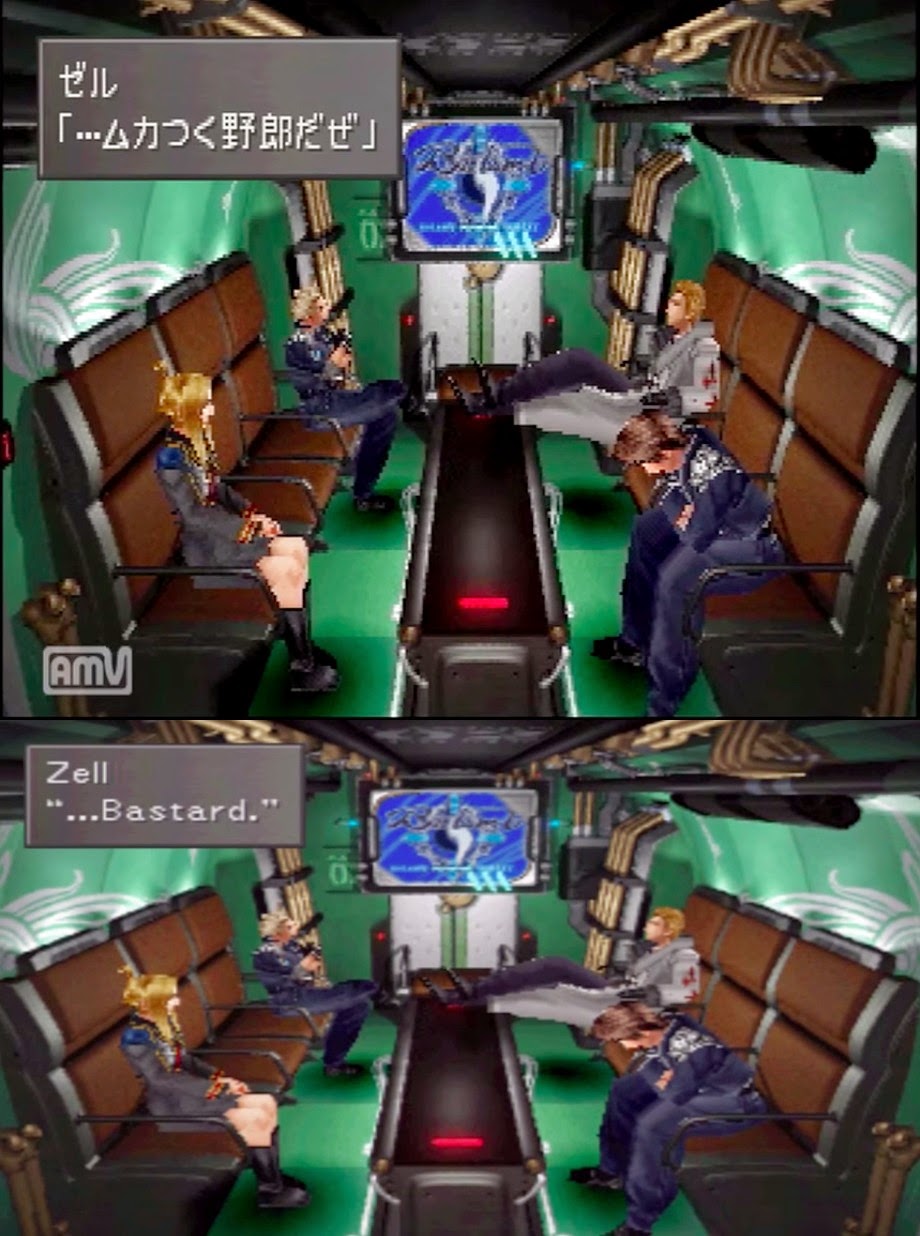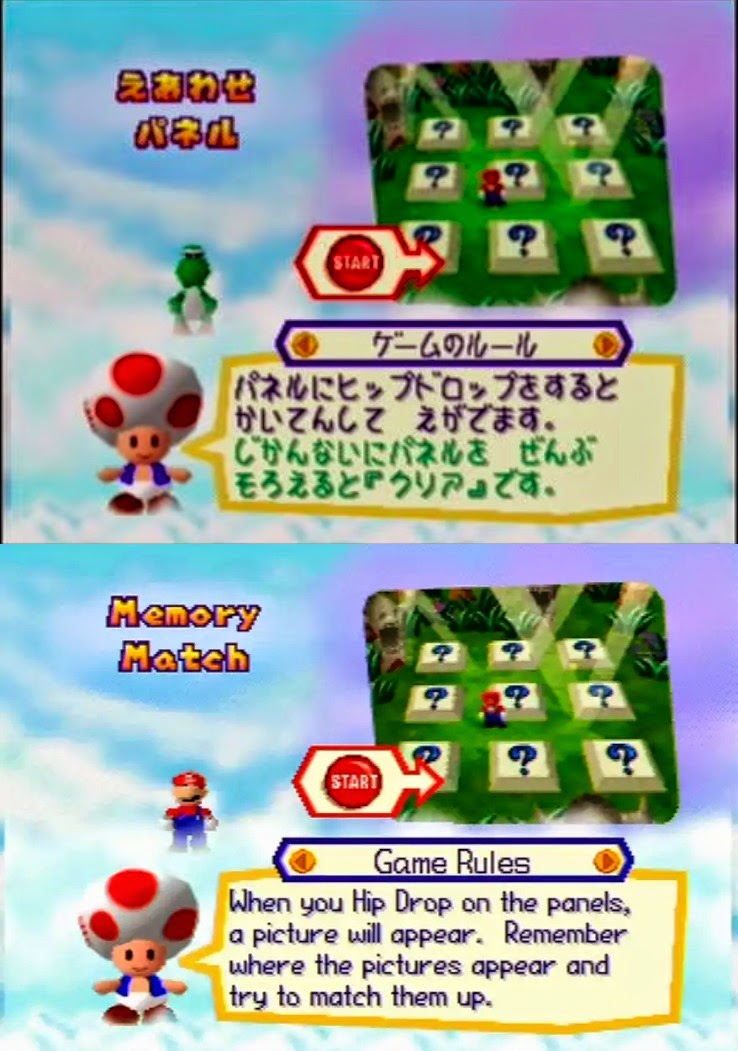This is an entry in a series of posts looking at the localisation of the beginning segment of the game, Final Fantasy VIII. You can find the first post here. Thanks for reading!
| Japanese | English | |
|---|---|---|
| Zell | なっ……!!どいつもこいつも……!!オレは……チキンじゃねぇ! |
What the...!!! WHY IS EVERYONE...? I am not a CHICKEN!!!
|
| Selphie 1 |
チキンがいやなら大サービスでポークかなぁ~?でも、ブタ野郎っていうのもなんかやだよね~
|
Well... If you don't like CHICKEN, how 'bout...a PIG! Oh, but you look more like a CHICKEN, anyway.”
|
1. The first half of Selphie's first sentence is identical in Japanese, but from there on it differs. Continuing on from, "Well if you don't chicken...", she says, "I could be kind and call you pork." Japanese has a word for pig, (buta), but Selphie says pooku (meaning "pork"), Moreover, she emphasises that she would be being kind if she referred to Zell like that. In the second sentence she then says, "But pig-wuss is kinda weird." This would be the literal translation if I kept in line with the previous translation of yarou (野朗) as "wuss," Selphie swaps the word chicken for pig, but then comments that there's something off about it. I suppose the English does somewhat capture this sentiment that calling Zell a pig isn't as good a fit (because chicken is a better fit). Moreover, I can see why the translator opted against mentioning pork, along with Selphie's opinion that being referred to as one would be an upgrade from chicken; this dialogue are somewhat confusing. However, maybe this was to intentionally show Selphie's airy and eccentric nature (which the rest of the game shows is a big part of her characterisation). The game's English translation makes Selphie seem fairly mean, especially because the translator's decision to write the animal terms in capital letters makes it seem like she is shouting this at Zell. I would offer alternative dialogue of, "Well, if you don't like chicken, how about piglet? But hmmm... piglet-wuss just doesn't have the same ring to it as chicken-wuss, does it?" Selphie's complaint with Zell is that he is cowardly, so I felt that calling him a piglet conveys this sentiment (and also sticks to the Japanese). I think it would be a mistake to use pork (because it's unnatural sounding) or pig (because it conjures up images of greed that don't fit the context).









